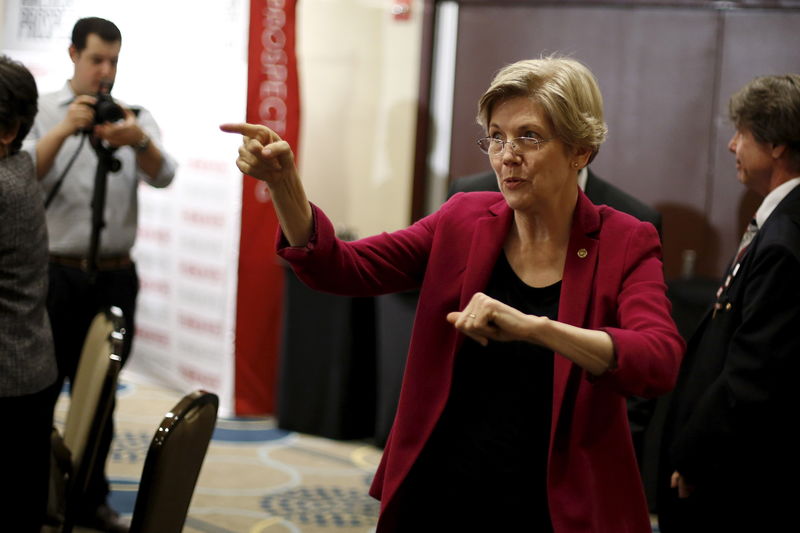NEW YORK (Reuters) - U.S. Senator Elizabeth Warren is calling for U.S. Department of Labor hearings on whether banks accused of rigging foreign exchange markets should be allowed to manage retirement accounts, the Financial Times reported on Sunday.
"When banks plead guilty to a crime, federal agencies must do more than look the other way," Warren told the Financial Times. "The SEC has already granted waivers to each of these banks without any detailed explanation, but it is not too late for the Department of Labor to hold a public hearing before it decides that such brazen lawbreakers can be trusted managing workers' retirement accounts."
Five of the world's largest banks, including JPMorgan Chase & Co (NYSE:JPM) and Citigroup Inc (NYSE:C), were fined some $5.7 billion, and four of them pleaded guilty to U.S. criminal charges over manipulation of foreign exchange rates, authorities said on May 20.
UBS AG, the fifth bank, will plead guilty to rigging benchmark interest rates, the U.S. Justice Department said.
The Securities and Exchange Commission gave the banks a series of waivers to let them continue their usual securities business shortly after they agreed to plead guilty to the criminal charges. The banks are expected to separately apply to the U.S. Department of Labor for exemptions to deal with pension and retirement savings plans.
The banks can continue to work for them while their applications are reviewed, which could take months.
A Labor Department spokesman has said the department so far had received applications from JPMorgan and Citigroup. The Financial Times report on Sunday said that the Labor Department had also received an application from Barclays (LONDON:BARC) bar, citing people familiar with the requests.
Granting waivers to big banks that break the law has become a flash point at the SEC, where Commissioner Kara Stein, a Democrat, in particular has openly criticized the agency for rubber stamping banks' requests.
Credit Suisse (SIX:CSGN) quietly withdrew a request for a waiver to raise capital more easily, after U.S. Securities and Exchange Commission staffers told the bank it would not win approval, people familiar with the matter told Reuters earlier this month.

The bank agreed last year to pay $2.5 billion to resolve criminal charges that it helped wealthy Americans evade U.S taxes.